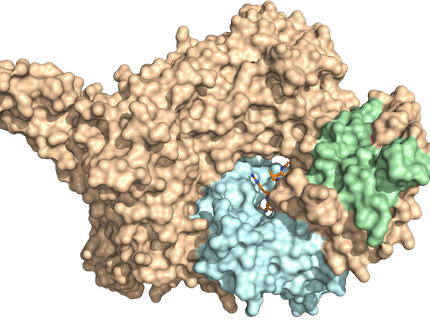VAI researchers find long awaited key to creating drought resistant crops
Findings could help engineer hardier plants and have implications for stress disorders in humans
Advertisement
Van Andel Research Institute (VARI) researchers have determined precisely how the plant hormone abscisic acid (ABA) works at the molecular level to help plants respond to environmental stresses such as drought and cold. Their findings, published in the journal Nature , could help engineer crops that thrive in harsh environments around the world and combat global food shortages. The findings could also have implications for stress disorders in humans.
VARI scientists have determined the structure of the receptors that plants use to sense ABA, a hormone that keeps seeds dormant and keeps buds from sprouting until the climate is right. Locating these receptors and understanding how they work is a key finding — one that has eluded researchers for nearly a half-century. This discovery is crucial to understanding how plants respond when they are under stress from extreme temperatures or lack of water.
Karsten Melcher, Ph.D., one of the lead authors of the study, works in the VARI Laboratory of Structural Biology led by Distinguished Scientific Investigator H. Eric Xu, Ph.D. The lab began studying abscisic acid signaling in March this year because a proposed ABA receptor was reported to be a member of G-protein coupled receptors, a group of proteins that the lab studies. More than 50% of all drugs on the market target these proteins, but it has been extremely difficult to determine their atomic structure.
Xu's laboratory uses X-ray crystallography to determine exactly how and why the drug compounds work in molecular detail, which can then help drug developers engineer more potent drugs that have fewer unwanted side effects.
Although it later resulted that the abscisic acid receptors were found to be members of another protein family, Xu's lab continued their studies on the newly identified ABA receptors. Their findings could help to develop crops that grow in drought, cold, salt water environments, and other harsh conditions, perhaps aiding in stemming or reversing food shortages around the world. Additionally, proteins central to ABA sensing are related to human proteins involved in cellular stress responses and may have implications for stress disorders in humans.
"Proteins with similarities to plant ABA receptors are also found in humans," said Xu. "Further studies in this area could reveal important implications for people with stress disorders."























































